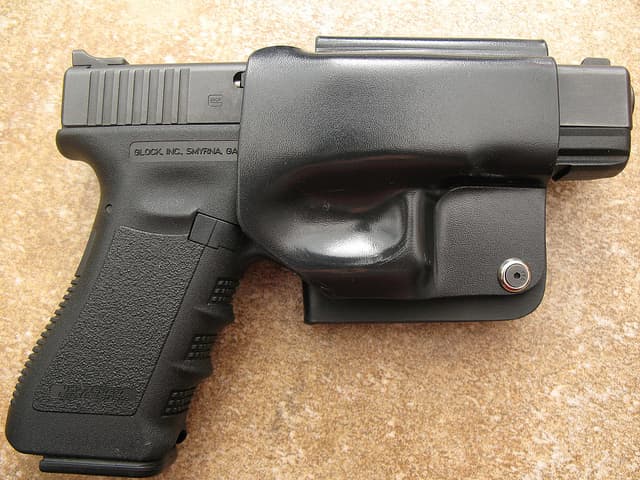Quick Tips on Shall-Issue and May-Issue Concealed Carry Permits
Don Moyer 11.27.12

In almost all of our 50 states, there are provisions for citizens to obtain a permit to carry a concealed weapon. Such permits are commonly referred to as CCW permits. Over the past 20 years, approximately 2/3 of the states have adopted what are called “Shall-Issue” laws that require the issuance of a concealed carry permit if a citizen meets a few simple criteria:
- No record of any felonies,
- No record of any domestic violence, and
- No history of any mental illness.
If you meet all three of the above in a Shall-Issue state, you must be granted a permit to carry a concealed weapon permit. The basic premise appears to be that it’s a good thing for law abiding citizens to be able to exercise their constitutional right to keep and bear arms. It’s probably not a coincidence that in every single state that has passed Shall-Issue laws, rates of violent crime have dropped dramatically. Let me repeat that every state that has passed a Shall-Issue law has seen a significant decrease in violent crime.
In the handful of states that have not adopted Shall-Issue laws, there is a wide range of discretion in the issuance of concealed carry permits. In discretionary (May-Isse) states, the decision whether or not to issue a concealed carry permit is usually in the hands of a local police chief, or sheriff. The issuance of such permits can, and does vary widely with the philosophy of the chief or sheriff. Some chiefs issue almost no permits at all, and other chiefs will issue permits to any reasonable citizen. Who fits the description as a reasonable citizen is strictly up to the judgment of the chief.
I recall years ago my local police chief was amenable to issuing CCW permits but did in fact turn down a considerable number of applicants. The chief and I were pretty good friends and discussed the issue at length. He made one comment that seemed to me to sum up his policy: “I’ll be damned if I’m going to issue a gun permit to the village idiot!”
Regardless of whether you live in a Shall-Issue state or a discretionary jurisdiction, there is a process that you must go through to successfully obtain a CCW. Naturally, as with any government body, there will be forms to fill out. Generally police chiefs and sheriffs want to see if there is any hint of violence in your background. If there is, you’re probably not going to get a CCW. The applications will often include questions like “how many traffic tickets have you gotten in the past 5 or 10 years?” or “have you been involved in any lawsuits in the recent past?” Again, your answers to such questions will affect your chances of getting a permit.
Most jurisdictions have a requirement for a minimum amount of education on the responsibilities that go along with carrying a gun. For example, “when would you be justified in using a weapon?”
In almost all cases, you may only use a weapon to defend yourself or someone else from the threat of death or great bodily injury. Most of the required gun courses for a CCW also include discussions of what kind of gun to carry and what kind of holster to carry it in. There are belt holsters, shoulders, ankle holsters, and even bra holsters. There are pocket guns, and purse guns and holsters that look just like the day planners you see so many people carry. A good CCW course will discuss the advantages of all of the options. Finally, you’ll need to demonstrate that you are proficient in the use of the gun you might chose to carry. If you can’t carry it safely and shoot it accurately, you shouldn’t be carrying at all.
Finally, you need to ask yourself if you should carry a gun at all. Some folks work at occupations where they have to carry a lot of cash or other valuables and thus are at high risk for robbery. Some people are required to work in high-risk neighborhoods. Before his death, my brother worked in the rail yards of several major urban areas and carried a gun for self-protection. Sure enough one night, I turned on the nightly news to find my baby brother had witnessed a murder from his train and had captured the murderer, holding him umtil the police arrived. Ironically he never even used his gun at all.
It seems like every time you pick up a newspaper or turn on your TV, that you see another example of violent crime committed against citizens. Carrying a gun for self protection is a huge responsibility and not one to be made lightly. How you answer that question is a decision only you can make.

